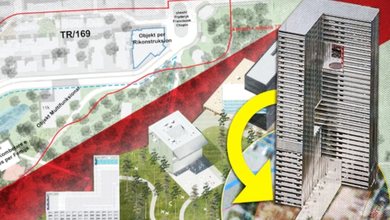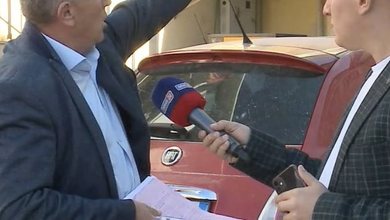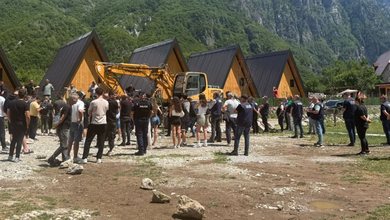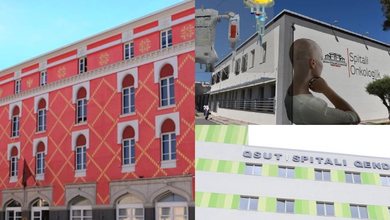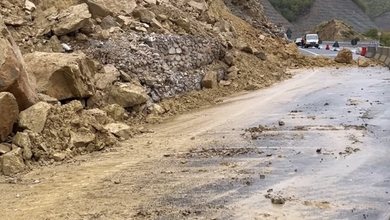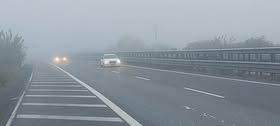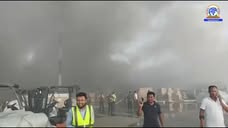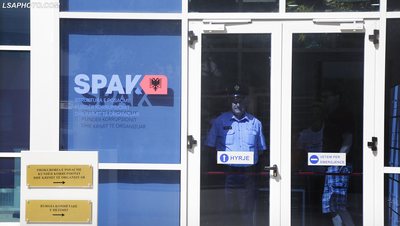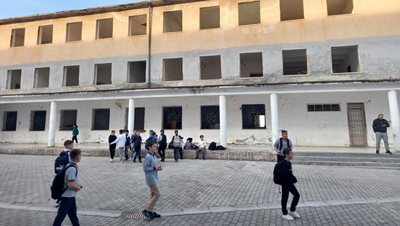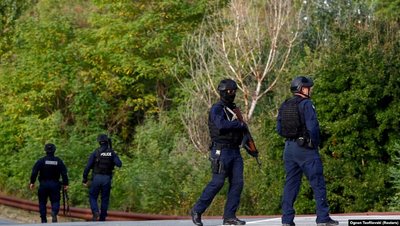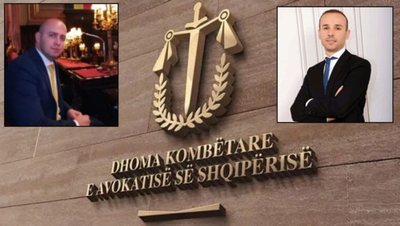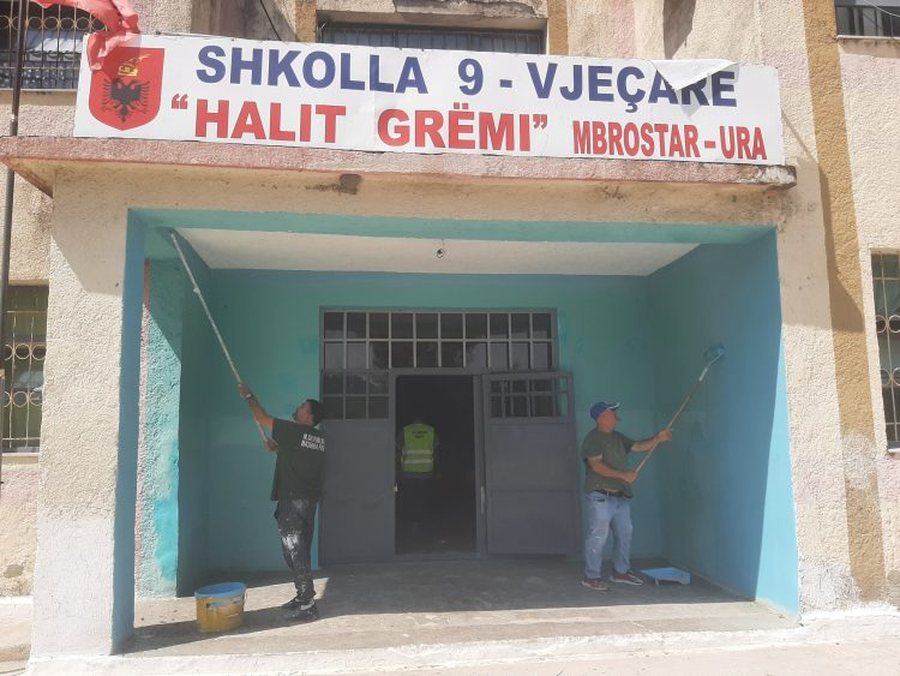
Fredi Sulejmani has been running the 9-year school "Halit Gremi" in Mbrostar, Fier, for 13 years and has been facing problems for the same number of years that have no solution. The school building is surrounded by sewage, which stinks and causes humidity in the classrooms and gym, endangering the health of the students.
The school yard fills with water every time it rains, hindering normal activities and Physical Education classes. A restoration carried out in 2017 did not help normalize the situation, so Sulejmani is awaiting a new investment.
"The condition of the school building is not good at all. We made a request to the municipality and it was agreed, so we were promised to do a complete reconstruction of it," Sulejmani told BIRN.
"Undoubtedly, the poor school infrastructure and the problems I mentioned above influence some parents not to bring their children to our school," he added, emphasizing that students are being lost.
The Mbrostari School is located about 5 kilometers from the city center of Fier in southern Albania, but it is not the only one that suffers from a lack of infrastructure and normal learning conditions.
According to teachers and civil society representatives, village schools in the Fier region have been neglected for years, leading to their emptying year after year and an exodus of students towards city schools.
Nevila Jahaj, head of the “Epoka e Re” Youth Organization, recently focused on a project to identify investment needs in Fier’s education system, told BIRN that shortages are found everywhere, but village schools suffer a more problematic situation.
“The Cakran school is awaiting investment, but until that happens, students are leaving the school,” said Jahaj.
"So with the state of school buildings, especially in villages, you could say that children cannot go to the school near their home. Many students have left for city schools, emptying the village schools," she added.
United schools
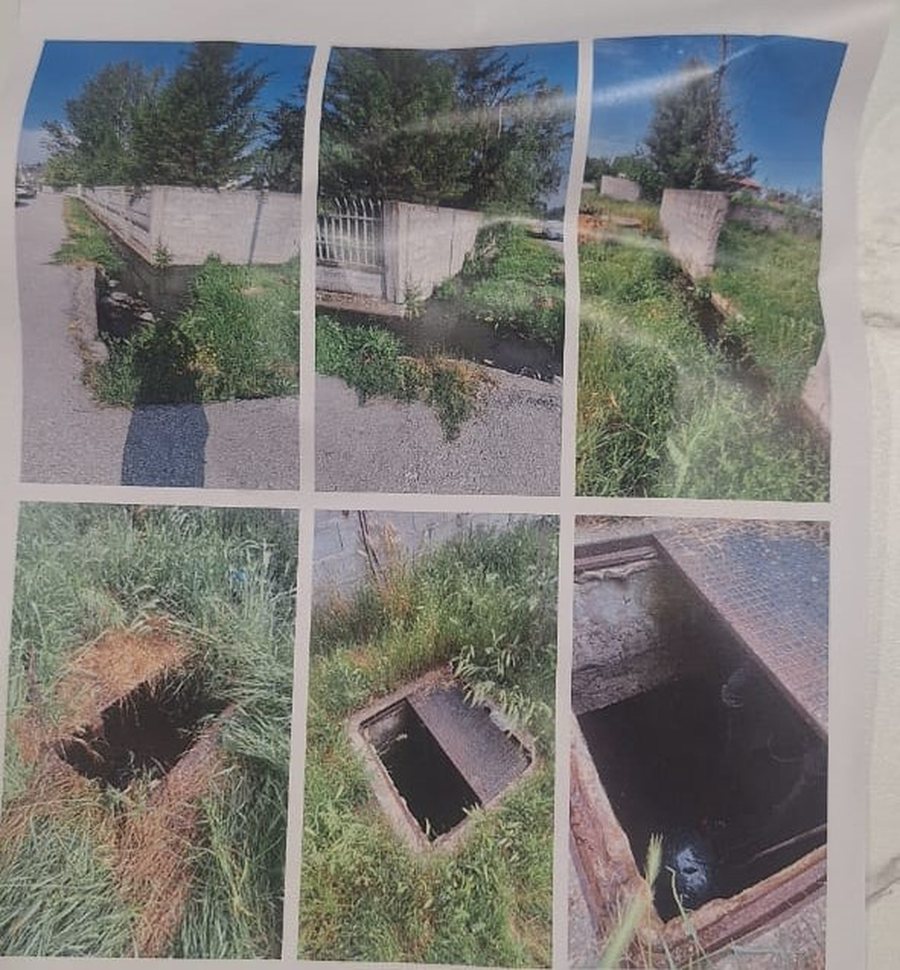
The Municipality of Fier covers 73 9-year schools and 13 public high schools, which together have over 19 thousand students. According to a document from the Municipality of Fier, the average distribution ratio is 15-18 students per class, a figure that reflects the low number of students in the schools.
Rural schools have a lower number of students than in the city, following a dominant practice of combined schools before the 1990s.
At the meeting held on July 25, 2025, the Municipal Council in Fier decided to add two more merged schools due to the low number of students; the "Jovan Ndreko" school in Libofshë and the "Dino Ismaili" school in Levan.
These schools will house primary, 9-year and secondary school students, a solution that is viewed with reservations by teachers.
According to Alketa Lugaj, a high school teacher with 25 years of experience, the merged schools do not guarantee high-standard infrastructure conditions in terms of gyms or libraries and leave much to be desired in terms of student safety.
“The safety of students cannot be guaranteed, as different ages have different problems,” Lugaj told BIRN.
The lack of investment and adequate learning conditions is pushing students from rural schools to cities. Even when schools provide funding, students do not return.
One such case occurred at the “Kutbi Vruzhaj” general secondary school in the village of Levan in Fier, where a lack of investment led to the demolition of the building and the relocation of students to Fier high schools. Even after the approval of the investments, the school did not have enough students, forcing the education authorities in Fier to seek a merger with the 9-year “Dino Ismaili” school.
According to a school teacher, out of a total of 100 students, only 40 returned after the school's reconstruction – a drastic decline that he says is not only related to emigration, but also to the school's conditions.
The former head of the Levan administrative unit, Ahmet Brahaj, claims the same thing.
"For six years, the students of the Levan high school went to Fier for classes. The building was on the verge of complete collapse. When the project was approved, it was seen that there were no more students. So the merger with the 9-year school was done," said Bahaj.
The same scenario is now being repeated with the "Halit Gremi" school in Mbrostar.
Edison Veliu, chairman of the Parents' Board of Directors, told BIRN that he has complained to all institutions and has received 'a mountain' of letters without a response.
“I have two boys who go to this school, the situation there is dire. The sewage flows over the perimeter wall. An electrical box and two open septic tanks are located next to the perimeter wall of the school, on the route that the children take to school every day,” Veliu told BIRN.
"The children complain to me every day about the strong smell," Veliu said, adding: "I honestly don't know if I will continue to take them to this school with these conditions." /BIRN/


